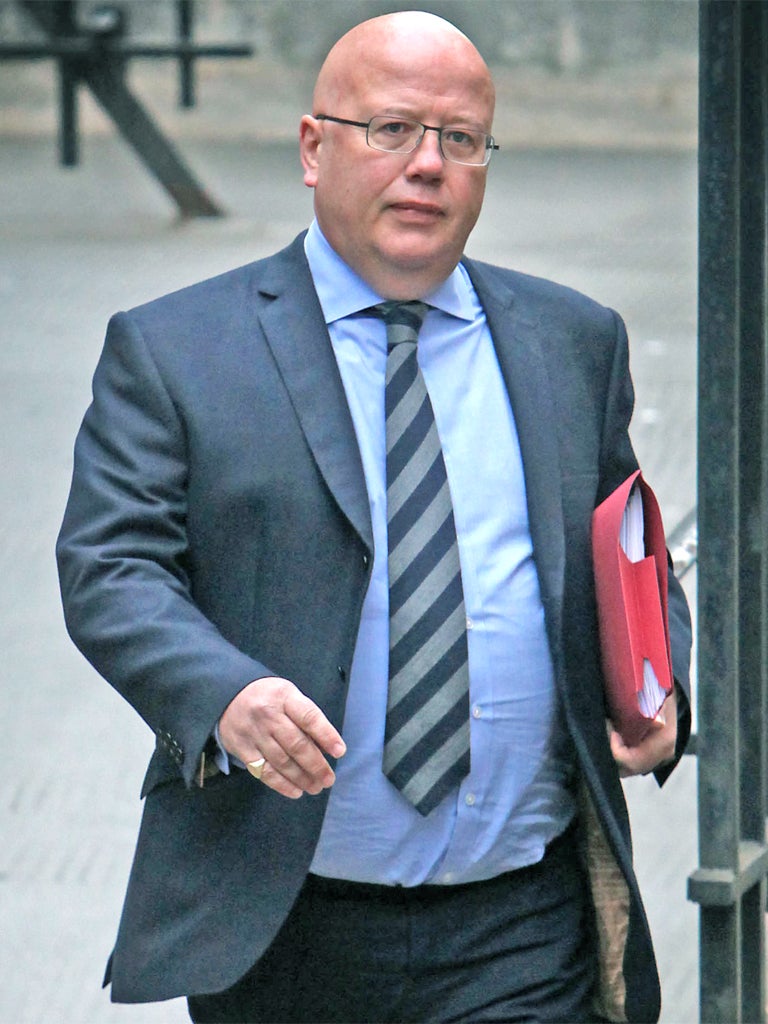Leveson: tinkering around the edges will not be enough
Judge leading inquiry suggests new blueprint for independent media regulation is needed

Your support helps us to tell the story
From reproductive rights to climate change to Big Tech, The Independent is on the ground when the story is developing. Whether it's investigating the financials of Elon Musk's pro-Trump PAC or producing our latest documentary, 'The A Word', which shines a light on the American women fighting for reproductive rights, we know how important it is to parse out the facts from the messaging.
At such a critical moment in US history, we need reporters on the ground. Your donation allows us to keep sending journalists to speak to both sides of the story.
The Independent is trusted by Americans across the entire political spectrum. And unlike many other quality news outlets, we choose not to lock Americans out of our reporting and analysis with paywalls. We believe quality journalism should be available to everyone, paid for by those who can afford it.
Your support makes all the difference.The exact details of Lord Justice Leveson's plans for press regulation will not become clear for months, but yesterday – with plenty of mulling still ahead of him – he gave a firm indication that he has sweeping change rather than fine-tuning in mind.
Since the Leveson inquiry began last October, the judge has appeared careful to reveal as little as possible about the shape his preferred reforms will take. But his judicial guard dropped yesterday during a day of questioning and intense discussion with leading Fleet Street editors.
Following the phone-hacking scandal at the News of the World, which acted as a catalyst for reviewing other tabloid "dark arts", the effectiveness of self-regulation in Britain – currently with the Press Complaints Commission (PCC) – has been questioned.
Lord Justice Leveson yesterday said that small changes to the current regulation system would not be enough: "It won't be good enough to say you can just tinker around at the edges."
Adding to previous comments that the PCC had not been a regulator at all, but merely a receptacle for complaints, he said he could envisage a regulatory system that was independent of the press industry itself, but which would not be bound by the state's authority. "I would be very surprised if government regulation ever even entered my mind," he told his own inquiry. It had been feared that the Leveson review would ultimately end self-regulation and impose state-driven control.
The editor of The Independent, Chris Blackhurst, yesterday told Lord Justice Leveson that although he recognised the need for reform, he was "worried" the outcome of the inquiry would curtail the industry's ability to continue investigative journalism.
Lord Justice Leveson again hinted that he was keen his reforms would not impact adversely on what he called "appropriate" journalism. Mr Blackhurst suggested any new regulator could operate in the way the Law Society or the General Medical Council governed the practices of lawyers and doctors. However, Lord Justice Leveson said this could be problematic because the state decides who can practise as a doctor or a solicitor, but journalists essentially practised the right to freedom of expression.
The editor of the Financial Times, Lionel Barber, also accepted that the days of the PCC were numbered, suggesting a regime that included serious fines and a robust code of conduct.
Throughout the hearing, there have been hints Lord Justice Leveson's eventual reform package would include a mechanism to address the current high cost of libel actions. Yesterday he repeated his wish to find a new "arbitration body" and a low-cost libel mediation system which would have value-for-money at its core and would address issues such as privacy and small libel claims.
The Independent columnist Johann Hari, who last year was found to have plagiarised parts of his published work, will return to the paper "within four or five weeks" after being suspended for four months without pay, Mr Blackhurst told Lord Justice Leveson.
Mr Blackhurst told the inquiry that the discovery of Mr Hari's practice of using quotes from other sources and presenting them as his own in star interviews had caused "deep shock to his colleagues". The fallout from the scandal, which also involved the discovery that Mr Hari had maliciously changed entries on Wikipedia using a false name, had, Mr Blackhurst said, damaged the reputation of both Mr Hari and the paper.
When he resumes work next month, Mr Hari will not be interviewing people for The Independent, Mr Blackhurst said.
Ex-Met officer is arrested
A former Scotland Yard officer was arrested yesterday by police watchdogs following information from a Metropolitan Police investigation into allegations of corrupt payments by journalists.
The 52-year-old was detained by investigators from the Independ-ent Police Complaints Commission at his Berkshire home on suspicion of unauthorised leaks to reporters.
Last night The Times revealed that a journalist working for it may have attempted to hack into an email account in pursuit of a story.
In evidence to the Leveson Inquiry, the title said it had investigated whether the reporter had attempted to obtain unauthorised access to emails in 2009. News International declined to comment on the allegations and it was unclear whether the journalist approached a third party or tried to access an account himself. The newspaper described the alleged hacking as an "isolated incident". The unnamed reporter has since left The Times.
Cahal Milmo
Join our commenting forum
Join thought-provoking conversations, follow other Independent readers and see their replies
Comments